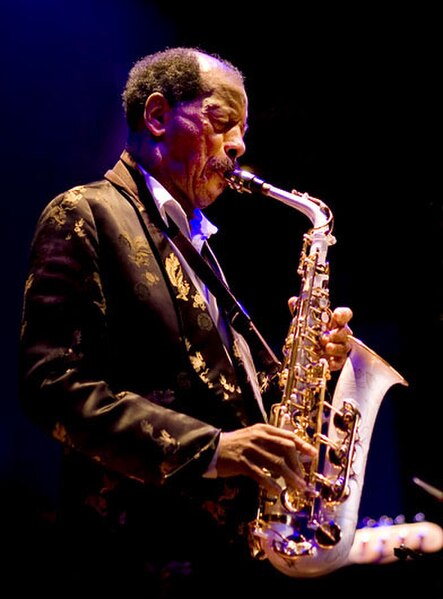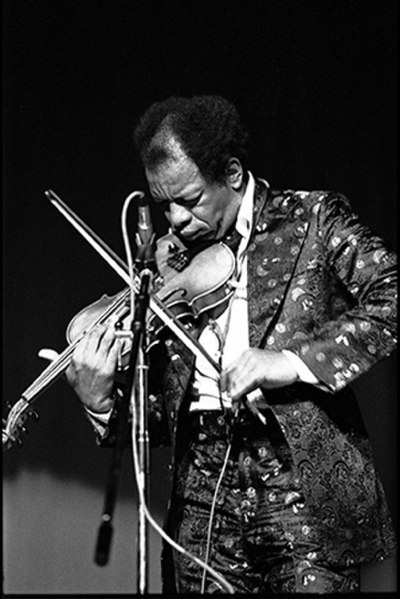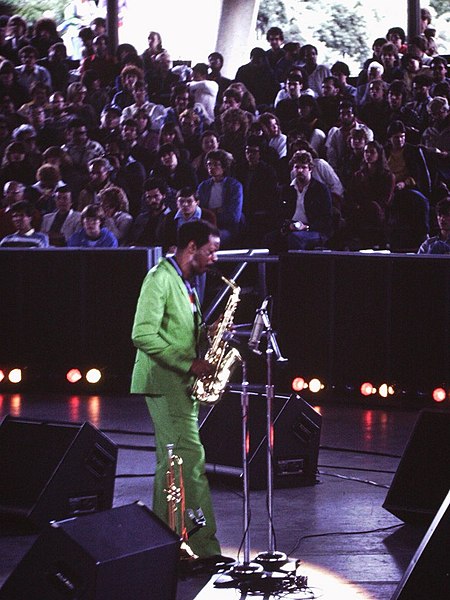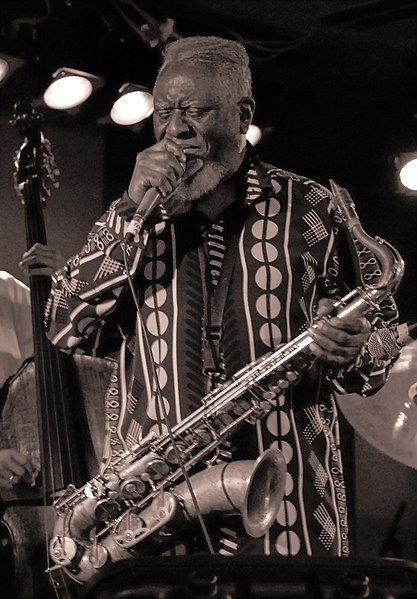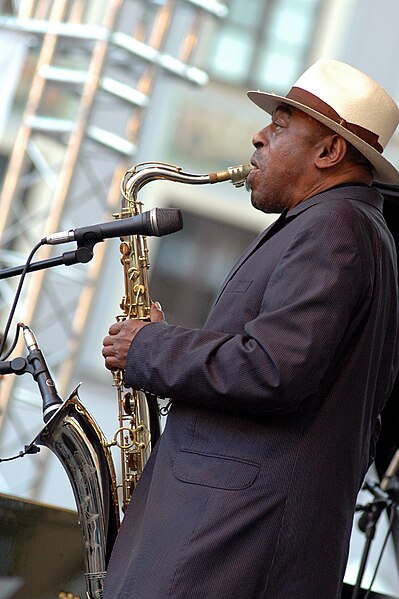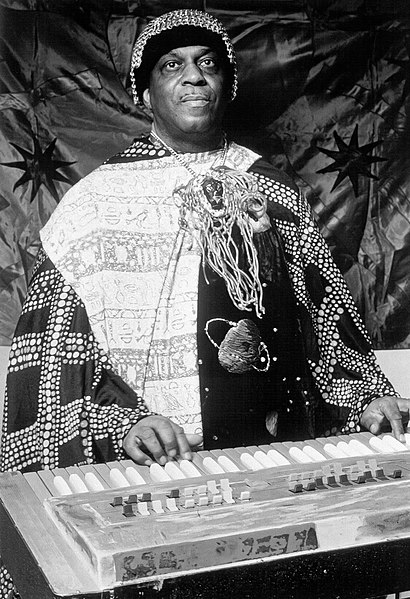Randolph Denard Ornette Coleman was an American jazz saxophonist, trumpeter, violinist, and composer. He is best known as a principal founder of the free jazz genre, a term derived from his 1960 album Free Jazz: A Collective Improvisation. His pioneering works often abandoned the harmony-based composition, tonality, chord changes, and fixed rhythm found in earlier jazz idioms. Instead, Coleman emphasized an experimental approach to improvisation rooted in ensemble playing and blues phrasing. Thom Jurek of AllMusic called him "one of the most beloved and polarizing figures in jazz history," noting that while "now celebrated as a fearless innovator and a genius, he was initially regarded by peers and critics as rebellious, disruptive, and even a fraud."
Coleman at the Enjoy Jazz Festival in Heidelberg, 2008
Coleman playing his signature alto saxophone in 1971
Coleman playing the violin in 1978
Coleman performs in Toronto in 1982.
Free jazz or Free Form in the early- to mid-1970s is a style of avant-garde jazz or an experimental approach to jazz improvisation that developed in the late 1950s and early 1960s when musicians attempted to change or break down jazz conventions, such as regular tempos, tones, and chord changes. Musicians during this period believed that the bebop and modal jazz that had been played before them was too limiting, and became preoccupied with creating something new. The term "free jazz" was drawn from the 1960 Ornette Coleman recording Free Jazz: A Collective Improvisation. Europeans tend to favor the term "free improvisation". Others have used "modern jazz", "creative music", and "art music".
Pharoah Sanders
Coleman in 2009
Archie Shepp
Sun Ra in 1973

